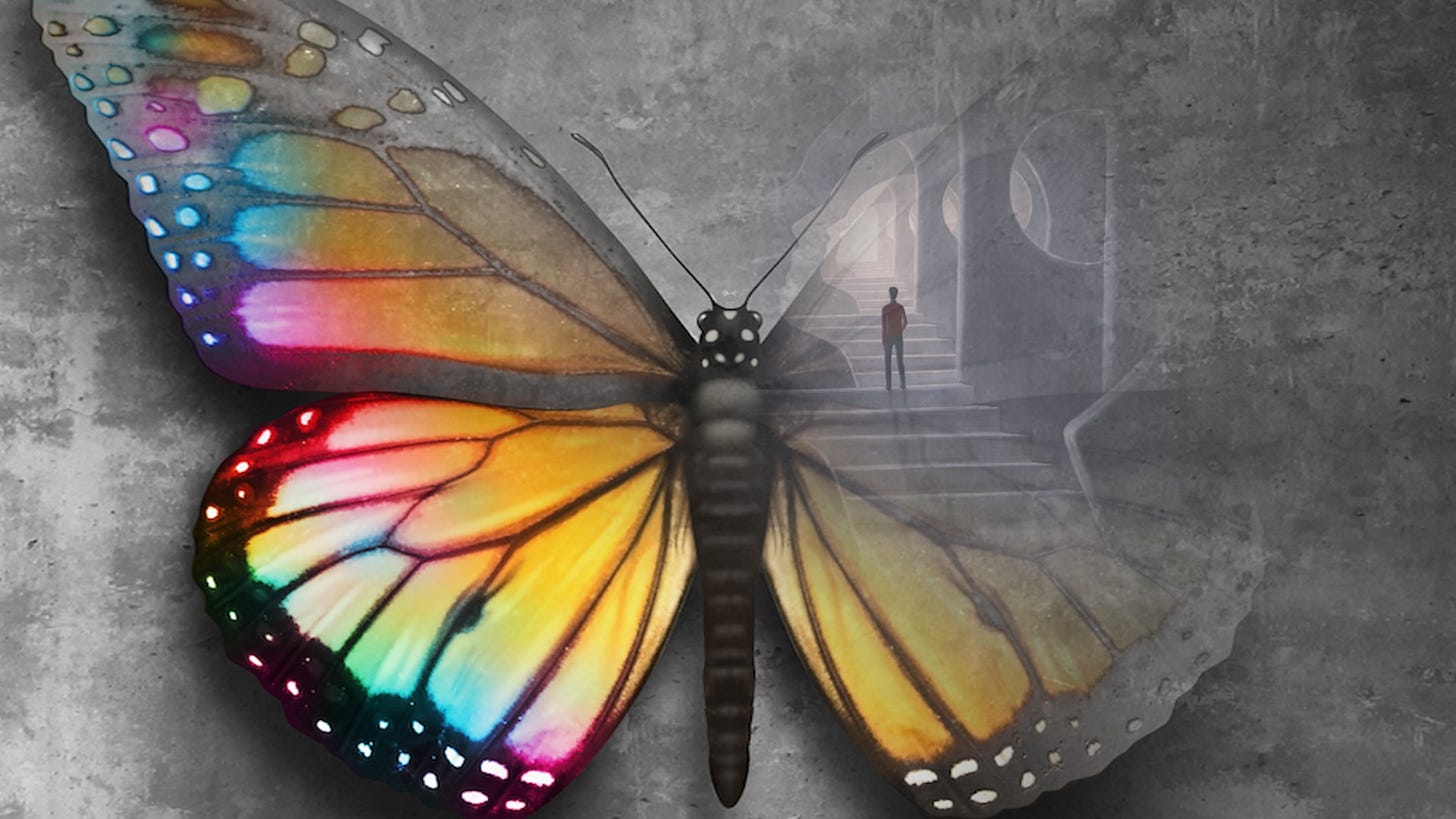Reimagining the Cultural Narrative: Art and Storytelling for Systemic Change
The Great Simplification #163 with Dougald Hine
In today’s modern era, the overwhelming flood of information that constantly flows our way can leave us feeling disoriented, lost, and powerless. Even science – our most trusted source of truth – can be taken out of context to fuel division and distort the reality around us. In the midst of this confusion, how can we learn to ground ourselves and find guideposts that can direct our lives and work?
Today, I’m joined by storyteller and social thinker, Dougald Hine, to explore the importance of narratives in shaping our understanding of the world and how they can help us navigate the complexities of life, especially in the face of ecological crises. Together, we discuss the need for a reframing of conversations around environmental and climate issues, the importance of grassroots responses to systemic crises, and the concept of ‘engaged surrender’ as a way to navigate the challenges of modern life.
How can we foster emotional resilience in the face of ecological overshoot and the death of modernity? What role do art and storytelling play alongside science and data in responding to our collective human predicament? And how can we strengthen our communities and plant the seeds for a different way of life, starting in our own small corners of the world?
In case you missed it…
In this week’s Reality Roundtable, I was joined by environmental health researchers Leo Trasande and Linda Birnbaum, as well as environmental policy advocate Christina Dixon, to discuss the harmful effects of plastic on human health and the ongoing global policy efforts to regulate the plastic and petrochemical industries. Our conversation dives into the risks of frequent plastic exposure, paths toward a world with reduced plastics use, and what it might mean for the economy if we made – or did not make – significant changes to the ways we use plastic.
Share Your TGS Story
In last week’s Frankly, I launched a community-driven project to capture and share these stories and examples of transformation - from small to large scales, with personal and global impact. We invite you to submit a short video (maximum three minutes) sharing how engaging with TGS has influenced changes in your life – whether through community projects, career shifts, consumption habits, or local initiatives. These submissions will be compiled into an upcoming episode, creating a tapestry of responses to, in turn, creatively inspire others to imagine how these ideas might 'rhyme' with possible changes in their own lives and communities.
(The link to submit videos will only be live for a few weeks, so if you’d like to share your story for this project, the time is now.)
If you appreciate The Great Simplification podcast…
Be sure to leave a review on your preferred podcast platform! Leaving reviews helps the podcast grow, which helps spread awareness of our systemic situation from experts in ecology, energy, policy, economics, technology, and community building so that we can better understand - and respond to - the challenges of the coming decade.
The Great Simplification podcast is produced by The Institute for the Study of Energy and Our Future (ISEOF), a 501(c)(3) organization. We want to keep all content completely free to view globally and without ads. If you’d like to support ISEOF and it’s content via donation, please use the link below.






I had the exact same experience as Nate listening to Dougald read an opening story from his book. I had also been lying on the sofa reading At Work in the Ruins but hearing it spoken by the author had an entirely different affect on me. I think that part of this was the fact that Nate was also listening to him read it. Because I share a love of nature/life with Nate, even though I don’t know him personally, there is a bond of respect. And there must be something sacred about reading together or listening to a story together that brings out so many more riches than simply reading words from a page by oneself, however beautiful or rewarding that experience may be.
I read the book a few months ago. This conversation brought to life so much more than I was able to grasp when reading the book alone. This is one of those episodes that I will definitely watch again. So much gentle wisdom. Also Nate’s expressions in this episode were priceless!